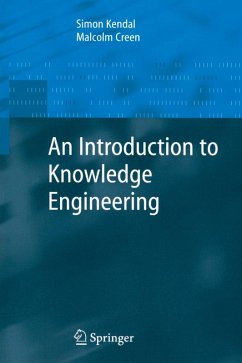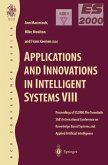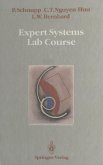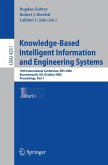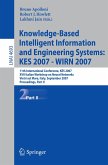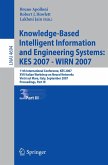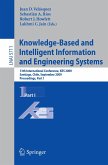An Introduction to Knowledge Engineering presents a simple but detailed exploration of current and established work in the field. Its simple yet comprehensive treatment of knowledge based systems will provide the reader with a substantial grounding in such technologies as:
.expert systems
.neural networks
.genetic algorithms
.case based reasoning systems
.data mining
.intelligent agents.
The text includes activities and self assessments that provide opportunities for the reader to reflect on and reinforce their understanding of the concepts as they progress.
The book will be suitable for both undergraduate and postgraduate students in computing science and related disciplines such as Knowledge Engineering, Artificial Intelligence, Intelligent systems, Cognitive Neuroscience, Robotics and Cybernetics.
In addition, it is expected that anyone interested or involved in sophisticated information system developments will find the book a valuable source of ideas and guidance.
Dieser Download kann aus rechtlichen Gründen nur mit Rechnungsadresse in A, B, BG, CY, CZ, D, DK, EW, E, FIN, F, GR, HR, H, IRL, I, LT, L, LR, M, NL, PL, P, R, S, SLO, SK ausgeliefert werden.
"The book is written in a modern style, which should encourage undergraduate students to read it. ... Overall, the book covers all classical topics of knowledge-based systems: knowledge acquisition, representation, expert system shells, and life cycles. It could make a good textbook for undergraduate courses ... and the students research the uniform resource locator (URL) links provided." (Aladdin Ayesh, ACM Computing Reviews, Vol. 49 (4), April, 2008)

